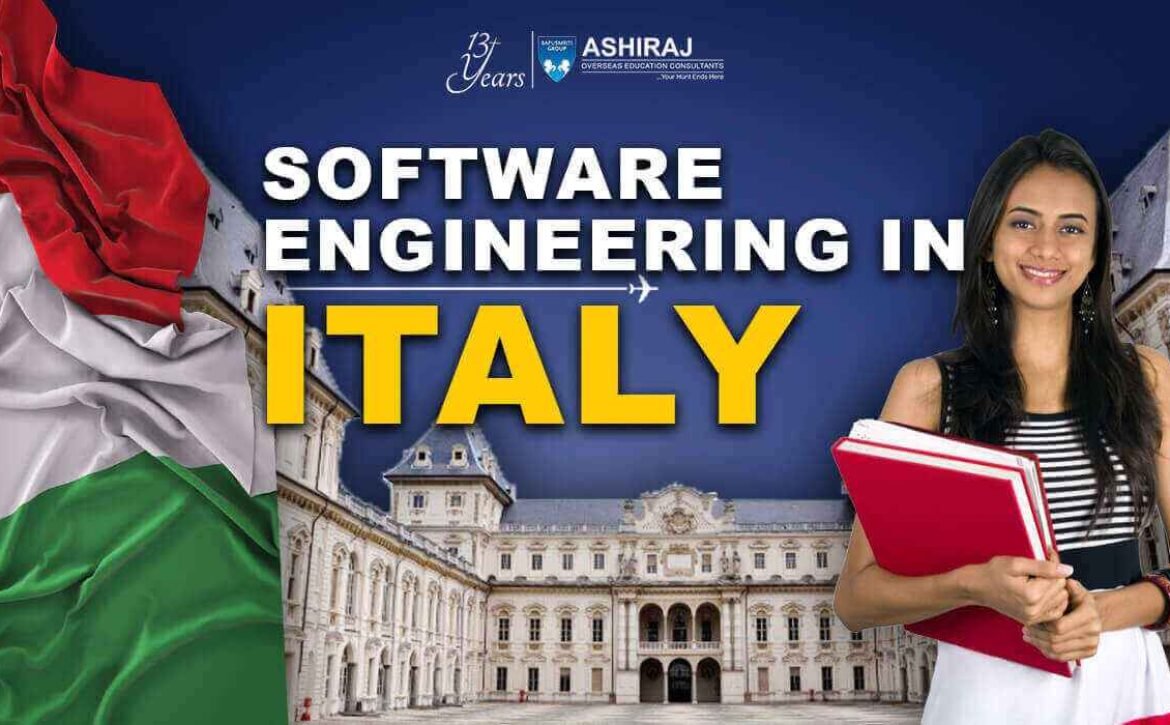
Software Engineering in Italy
Software Engineering in Italy has witnessed a significant evolution, showcasing a blend of traditional craftsmanship and innovative technological advancements. With a rich history deeply rooted in engineering and design, Italy has cultivated a burgeoning software industry characterized by its unique approach to software development. The country’s software engineering landscape reflects a commitment to quality, precision, and creativity, mirroring Italy’s reputation for excellence in craftsmanship across various disciplines.
Italian software engineers are known for their proficiency in integrating artistry with technical expertise, emphasizing elegant design alongside robust functionality. Italy’s software industry thrives on collaboration, fostering a dynamic ecosystem where academia, research institutions, and businesses converge to drive innovation forward.
From renowned startups to established companies, Italy embraces a diverse spectrum of software engineering practices, encompassing areas like automotive software, fintech, gaming, and more. As Italy continues to embrace digital transformation, the allure of its software engineering prowess remains a pivotal force in shaping the country’s technological landscape.
Why Study Software Engineering Courses in Italy?
- Rich Engineering Heritage: Italy boasts a longstanding tradition of engineering excellence, creating an ideal environment for studying software engineering.
- Innovative Approach: Italian software engineering courses emphasize a harmonious blend of creativity and technical expertise, aligning with the nation’s reputation for combining artistry with precision.
- Renowned Educational Institutions: Italy houses prestigious universities offering cutting-edge software engineering programs, providing students with access to top-notch education and resources.
- Diverse Specializations: From automotive software to fintech and gaming, studying software engineering in Italy allows for specialization in various thriving sectors, catering to diverse career interests.
- Cultural Experience: Apart from academic pursuits, studying in Italy offers a chance to immerse oneself in a rich cultural experience, exploring historical landmarks, art, and culinary delights.
- Industry Collaboration: The country’s software industry fosters collaborations between academia and businesses, offering students valuable opportunities for internships, research projects, and real-world experience.
- Global Networking: Italy’s strategic location in Europe facilitates networking opportunities, enabling students to connect with professionals and potential employers within the continent.
Studying Software Engineering in Italy presents a compelling proposition, coupling academic excellence with cultural immersion and industry relevance.
Course Curriculum of Software Engineering in Italy
- Foundational Studies: Italian software engineering programs typically commence with core subjects like mathematics, algorithms, and programming languages, laying a strong groundwork for future courses.
- Software Development Methodologies: Courses delve into agile methodologies, software design patterns, and project management techniques, preparing students for real-world development scenarios.
- Specialized Tracks: Italy offers diverse specialization tracks within software engineering, including cybersecurity, artificial intelligence, and IoT, allowing students to tailor their education to specific interests.
- Practical Learning: Emphasis on practical application through internships, industry projects, and lab sessions enriches the learning experience, providing hands-on exposure to industry tools and practices.
- Innovation and Research: Some programs prioritize research, encouraging students to engage in cutting-edge projects, contributing to advancements in the field of software engineering.
- Interdisciplinary Approach: Collaborations with other disciplines such as design, business, and engineering enable a holistic understanding of software development’s impact on various industries.
- Industry Alignment: The curriculum often aligns with industry needs, ensuring graduates possess skills relevant to the evolving tech landscape, enhancing employability.
The software engineering curriculum in Italy combines theoretical foundations with practical application, fostering well-rounded professionals equipped to excel in the dynamic tech industry.
List of Top Universities in Italy For Software Engineering
University | QS World University Ranking 2023 | Type of University | Average Annual Fees | Programs Offered |
Politecnico di Milano | 20 | Public | €1,500 – €4,000 | Software Engineering, Computer Science, Information Technology |
University of Bologna | 160 | Public | €900 – €3,000 | Computer Engineering, Software Development, Data Science |
Sapienza University of Rome | 180 | Public | €850 – €1,500 | Software Engineering, Computer Science, Cybersecurity |
University of Padua | 250 | Public | €1,000 – €3,500 | Computer Engineering, Software Systems, AI and Robotics |
University of Trento | 350 | Public | €1,000 – €4,500 | Software Engineering and Information Systems, Internet and Multimedia Engineering |
Italy boasts top-tier universities renowned for their excellence in software engineering education. Here’s a snapshot of the top five universities offering comprehensive programs:
- Politecnico di Milano: Ranked 20th globally, this public university offers programs in Software Engineering, Computer Science, and Information Technology, with annual fees ranging from €1,500 to €4,000.
- University of Bologna: At 160th position, it provides courses in Computer Engineering, Software Development, and Data Science, with fees averaging between €900 and €3,000.
- Sapienza University of Rome: Ranked 180th, offering programs in Software Engineering, Computer Science, and Cybersecurity at fees ranging from €850 to €1,500.
- University of Padua: Positioned at 250, it offers courses in Computer Engineering, Software Systems, and AI and Robotics, with annual fees ranging from €1,000 to €3,500.
- University of Trento: Ranked 350th, providing programs in Software Engineering and Information Systems, Internet and Multimedia Engineering, with fees between €1,000 and €4,500.
These universities present diverse programs, aligning with the ever-evolving field of Software Engineering in Italy.
Eligibility Criteria for Software Engineering in Italy
- Academic Qualifications: Prospective students typically need a high school diploma or equivalent for undergraduate programs. For master’s degrees, a relevant bachelor’s degree in a related field is necessary.
- Language Proficiency: International applicants are required to demonstrate proficiency in English. Commonly accepted language proficiency tests include the IELTS (International English Language Testing System) and TOEFL (Test of English as a Foreign Language).
IELTS and TOEFL Scores (minimum requirements):
Test | Minimum Score |
IELTS | 6.0 – 7.5 |
TOEFL (iBT) | 75 – 100 |
- Passport & Student Visa: Applicants need a valid passport for the duration of their study period and must obtain a student visa from the Italian embassy or consulate in their home country.
- Work Experience: While not always mandatory, some universities or specific programs might require applicants to have relevant work experience in the field of software engineering.
Meeting these eligibility criteria is crucial for admission to software engineering programs in Italy, ensuring that students possess the necessary academic qualifications, language proficiency, and necessary documentation.
Documents Required for Software Engineering in Italy
- Academic Transcripts: Certified copies of academic transcripts and certificates are essential, showcasing educational qualifications and grades attained.
- Passport & Visa Documents: A valid passport with a minimum validity covering the study duration and the student visa obtained from the Italian embassy or consulate are mandatory.
- Language Proficiency Certificates: Proof of language proficiency through standardized tests like IELTS or TOEFL with scores meeting the program’s requirements.
- Letters of Recommendation (LOR): Typically, two or three LORs from professors or employers highlighting the applicant’s academic or professional capabilities.
- Work Experience Certificate: If required, a work experience certificate demonstrating relevant experience in the field of software engineering.
- Proof of Financial Resources: Documents indicating financial stability to cover tuition fees, living expenses, and other costs throughout the study period.
- Statement of Purpose (SOP): An essay outlining the applicant’s academic background, career goals, and reasons for choosing the specific program.
- Health Insurance: Evidence of comprehensive health insurance coverage for the duration of the study in Italy.
Preparing and organizing these documents is crucial to ensure a smooth application process for software engineering programs in Italy, demonstrating eligibility and commitment to pursuing higher education.
Admission Process for Software Engineering in Italy
- Research and Choose Institutions: Explore reputable universities offering software engineering programs in Italy. Consider rankings, program offerings, faculty, and location.
- Check Eligibility Criteria: Review the admission requirements, ensuring alignment with academic qualifications, language proficiency, and any additional prerequisites.
- Prepare Required Documents: Gather necessary documents such as academic transcripts, language proficiency certificates (IELTS/TOEFL), passport, visa, LORs, work experience certificates (if applicable), financial statements, and SOP.
- Online Application: Complete the university’s online application form accurately, providing personal details, academic history, and uploading required documents within the specified deadlines.
- Pay Application Fees: Some universities may require payment of application fees. Ensure timely payment to proceed with the application process.
- Wait for Evaluation: Once the application is submitted, await evaluation by the admissions committee. This process may take several weeks.
- Interview (if required): Certain programs or universities might conduct interviews to assess candidates further. Prepare accordingly if contacted.
- Receive Admission Decision: Upon evaluation, applicants will receive an admission decision. If accepted, follow the instructions provided for enrollment procedures and next steps.
Following these steps diligently ensures a smoother application and admission process for pursuing software engineering studies in Italy.
“Education is the most powerful weapon which you can use to change the world.”
Nelson Mandela
Cost of Studying Software Engineering in Italy
- Tuition Fees: Public universities in Italy offer relatively lower tuition fees compared to many other countries. For EU/EEA students, tuition fees are generally more affordable than for non-EU/EEA students.
- Public vs. Private Institutions: Public universities often have lower tuition fees, ranging from approximately €900 to €4,000 per year for undergraduate programs. Private universities may have higher fees, averaging around €6,000 to €20,000 per year.
- Living Expenses: Cost of living varies based on the city and lifestyle. On average, students should budget around €700 to €1,200 per month, covering accommodation, food, transportation, and other personal expenses.
- Scholarships and Financial Aid: Several scholarships, grants, and financial aid options are available for international students based on academic merit, need, or specific criteria. Explore these opportunities to offset expenses.
- Health Insurance: Health insurance is mandatory for students studying in Italy. The cost ranges from €150 to €200 per year, depending on the coverage.
- Additional Costs: Miscellaneous expenses like books, study materials, residence permit fees, and extracurricular activities should also be considered in the overall cost estimation.
Understanding the breakdown of expenses helps prospective students plan and budget for pursuing software engineering studies in Italy.
Scholarships For Software Engineering in Italy
Scholarship Name | Amount | Application Deadline | Eligibility Criteria |
Italian Government Scholarships | Varies | April-May (Annually) | Open to international students, including Indian students, based on academic merit and specific country-based quotas. |
EDISU Piemonte Scholarships | Up to €5,200 | Varies (Check website) | For students enrolled at universities in Piedmont region. Criteria include family income and merit. |
Politecnico di Milano Merit-Based Scholarships | Up to €10,000 | June 30 | Awarded based on academic excellence to incoming international students. |
University of Bologna Study Grants | Partial Tuition Fee Waiver | March 31 (Annually) | Merit-based scholarships for international students pursuing degree programs at the university. |
University of Padua Scholarships | Varies | Varies (Check website) | Range of scholarships based on academic performance and financial need for international students. |
Scholarships for Software Engineering in Italy provide financial support to international students, including those from India, pursuing studies in this field. Each scholarship has varying criteria, such as academic excellence, financial need, and regional considerations. Deadlines range from March to June, encouraging early applications for better chances of securing financial aid for studies.
Career Opportunities After Software Engineering in Italy
Job Profile | Description | Average Salary (EUR) |
Software Developer | Design, develop, and test software applications. | €30,000 – €50,000 per year |
Systems Analyst | Analyze and improve computer systems and processes. | €35,000 – €55,000 per year |
Data Scientist | Analyze and interpret complex data to aid decision-making. | €40,000 – €60,000 per year |
Cybersecurity Analyst | Protect systems from cyber threats and vulnerabilities. | €35,000 – €60,000 per year |
IT Project Manager | Oversee software projects, ensuring timely delivery. | €45,000 – €70,000 per year |
Software Engineering in Italy offers diverse and promising career paths with competitive salaries. Software developers play a pivotal role in designing and creating applications, earning an average of €30,000 to €50,000 annually. Systems analysts and data scientists command salaries ranging from €35,000 to €60,000, utilizing analytical skills to enhance systems and data-driven decision-making. Cybersecurity analysts are in high demand, earning between €35,000 and €60,000, safeguarding systems from threats. IT project managers oversee project execution, earning €45,000 to €70,000, ensuring successful software delivery. These roles represent just a fraction of the expansive opportunities available in the software engineering landscape in Italy, offering rewarding careers and growth prospects.
Frequently Asked Questions About Software Engineering in Italy
Yes, many universities in Italy offer English-taught programs in Software Engineering to accommodate international students.
Admission requirements often include academic transcripts, language proficiency tests (such as IELTS or TOEFL), letters of recommendation, and a statement of purpose.
Yes, several scholarships and grants are available for international students, based on merit, need, and specific criteria set by universities or external organizations.
Bachelor’s programs generally last for three years, while Master’s programs typically span two years in Italy.
Yes, international students in Italy are allowed to work part-time up to 20 hours per week during the academic year and full-time during holidays.
Tuition fees vary by university and program but generally range from €900 to €4,000 per year for undergraduate programs.
Graduates can pursue roles such as software developer, systems analyst, data scientist, cybersecurity analyst, IT project manager, and more with competitive salaries.
Yes, Italy offers post-study work opportunities, allowing international students to seek employment in the country after graduation.
While some universities may offer programs in English, learning Italian can be advantageous for daily life and better integration, but it’s not always mandatory for studies.
Cities like Milan, Rome, Bologna, Padua, and Trento are known for hosting renowned universities with quality Software Engineering programs.




